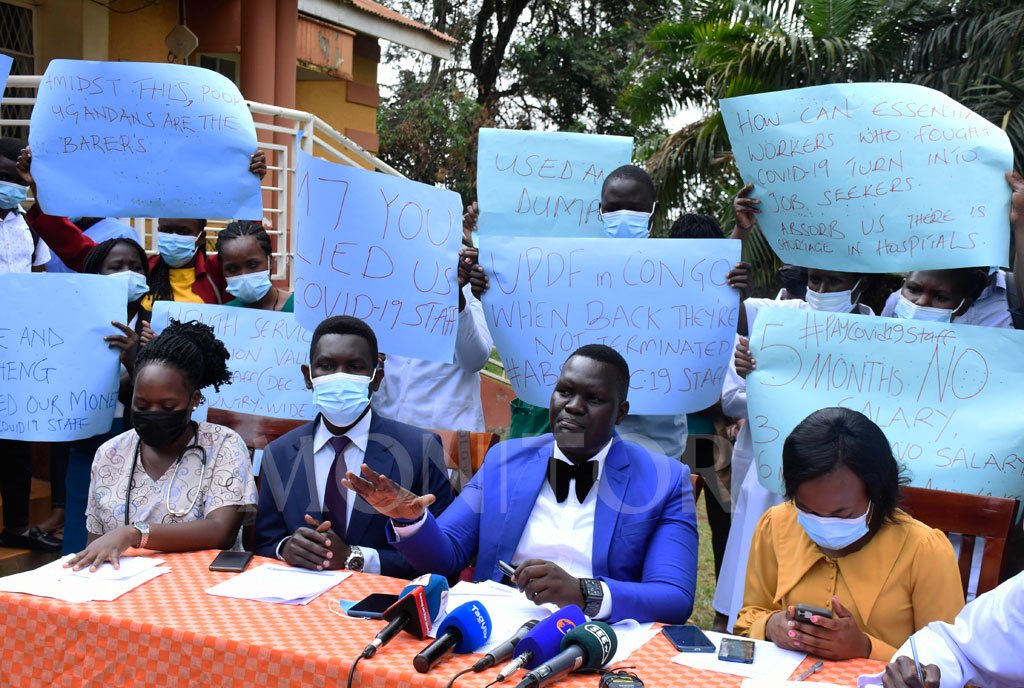Prime
Uganda's Covid hotspots named

Uganda's health minister, Jane Ruth Aceng. PHOTO/FILE
What you need to know:
- According to the statistics, of the 572 cases registered between June 4 and June 10, Kampala contributed 431 cases, while Wakiso had 47 and Gulu 23.
Statistics from the Ministry of Health indicate that Kampala, Wakiso and Gulu have contributed 87 percent of cases of Covid-19 infections reported in the last seven days as the country experiences a resurgence.
According to the statistics, of the 572 cases registered between June 4 and June 10, Kampala contributed 431 cases, while Wakiso had 47 and Gulu 23.
Other districts where infections have been reported include Jinja, Mbarara, Rubirizi, Mukono, Kabale, Lira, Kiruhura, Adjumani, Bududa, Kyotera, Mbale, and Arua.
One death and an average positivity rate of 4 percent were recorded between June 4 and June 10, the figures which contrast with the 61 cases, zero death and an average positivity rate of 0.3 percent reported by the ministry between April 4 and April 10. Data for the month of May is not available.
Positivity rate refers to positive cases detected from samples tested. A positivity rate under 5 percent indicates that the pandemic is under control, according to the ministry. The 4 percent positivity rate means the pandemic is about to get out of control.
Health experts are now appealing for increased adherence to preventive measures and vaccination to minimise the health and economic effects of the wave as the citizens struggle with rising commodity prices.
Prof David Serwadda, a public health expert who heads the government’s Vaccine Advisory Committee (VAC), told Monitor yesterday that it is still too early to gauge the severity of the new wave of the pandemic.
“Remember many countries around the world are also experiencing a bit of an increase in Covid-19 cases so, it is hard to say how severe it [the wave] will be. A lot depends on the drivers,” he said.
The government scientists recently attributed the resurgence to waning immunity from vaccines, suspected emergence of a new variant of the coronavirus and low adherence to preventive measures.
Mr Emmanuel Ainebyoona, the Ministry of Health spokesperson, said investigations into the suspected new variant are underway.
Prof Serwadda said: “About herd immunity, certainly our vaccine programme has increased in its coverage so it could be one of the factors that will limit the severity.” Only six infected persons have been hospitalised.
The latest statistics from the Ministry of Health indicate that around 21m doses have been administered since March 2021. From this, at least 16m people are vaccinated with one dose out of the 22 million people (about 50 percent of the population) who are 18 years and above. Up to 10.9m people have been fully vaccinated.
Prof Freddie Ssengooba, a public health expert from Makerere University, told this newspaper earlier that urban areas often register higher cases of infections and deaths because of overcrowding that increases exposure.
“Cities have more people, more interactions and more chances of infection because one person can spread the infection to more people,” he explained.
Prof Ssengooba added that prisons, churches, or where people are watching football matches are the other places with a higher risk of infection. This means one should strictly adhere to preventive measures such as wearing of facemask, hand sanitising and social distancing, when in such places
Dr Jane Ruth Aceng, the Health minister, said recently that they are not considering lockdown and measures that would cripple economic recovery.




